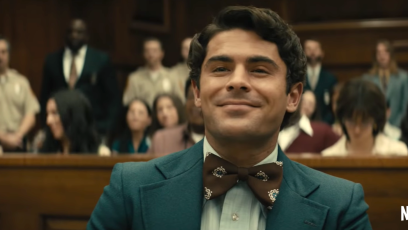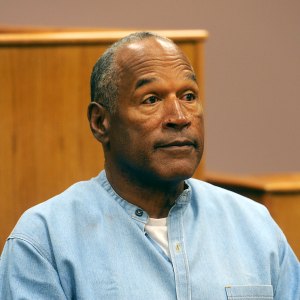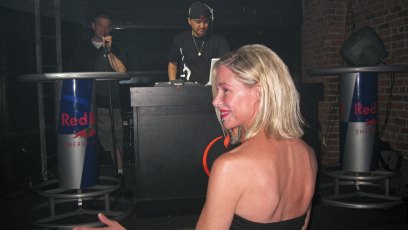Exclusive‘The Disappearance of Susan Cox Powell’ Investigator Gives an Inside Look at the Documentary
When it comes to follow true crime, there are plenty of fascinating cases to explore. But In Oxygen’s latest documentary, they’re looking into the story of Susan Cox Powell, a wife and mother who went missing in December 2009. Premiering Saturday, May 4, and Sunday, May 5, at 7 p.m., the two-part special explores just what may have happened. To get a better understanding of the case and what fans can expect, In Touch spoke exclusively with Stephanie Bauer, an investigative reporter who worked on the documentary. Check out what she had to say about the crime and the show’s theory of what became of Susan.
Who is Susan Cox Powell?
Susan was a 28-year-old mother-of-two when she went missing on December 6, 2009, from West Valley City, Utah. According to Stephanie, she “went missing very suddenly when everyone knew that she was probably going to leave her husband,” leaving friends and family suspicious of her disappearance. “When investigators started looking into the case, they found out that her father-in-law was obsessed with her, too. So there are two big suspects that were close to her.” In the 10 years since she went missing, neither she nor her body has been discovered.
Who was Susan Cox Powell’s father-in-law, Steven Powell?
Steven Powell was the father of Susan’s husband, Josh. He was about 58 at the time of her disappearance. For a period of time during Susan and Josh’s marriage, they lived with Steven and some of Josh’s siblings. During that time, Steven seemed to develop feelings for Susan and was convinced that she reciprocated them. After her disappearance, law enforcement discovered that he had also been videotaping her, occasionally with but frequently without her knowledge.
According to Stephanie, who had access to Susan’s journals during the course of the investigation, the young wife did tell her husband about his father’s inappropriate behavior. “It was very odd because [she] did tell Josh, ‘Your dad likes me, and I think is in love with me.’ She said, ‘He makes me really uncomfortable.’ And just from reading Susan’s journals, Josh really didn’t say, ‘All right, let’s get out of here, get away from my dad. I’ll talk to my dad. I’ll handle it.’ He didn’t do any of that. He very much so just kind of brushed it away.”
She continued, “To our knowledge, he never confronted his dad about it or said anything to his father. And to the day that Susan went missing and even afterward, Josh and his father had a very close relationship. They would talk on the phone for hours and hours at a time. Very close. … The fact that his father liked Susan didn’t seem to affect Josh at all, which is very, which is just another bizarre part of this case.”
What happened to Susan’s husband, Josh Powell, and her children?
After his wife’s disappearance, Josh and his two children, boys named Charles and Braden, moved in with his father and their grandfather, Steven. “Within two weeks, Josh moved from Utah to Washington state to move in with his dad, which is weird because, if your wife is missing, why would you leave the family home if you think she might come home any minute?” Stephanie said. But Josh never appeared to be concerned about his missing wife. “When he was questioned about it in interviews afterwards, with investigators, he offered up that theory that he went camping and he doesn’t know what happened to her and that she may have run off with another man, or that she may have just run off to start another life,” the investigator continued.
“In their very first interviews with investigators, he brings up the possibility of suicide. … He didn’t get into it too much, but when investigators asked if she was depressed, he suddenly said, ‘Oh, yes, yes, yes.’ But in her journals, there’s nothing to say that that was true.” At the time, investigators were convinced that Josh knew what had happened to his wife. “The investigators said about Josh and his father, too, that they were both had these just unlikable personalities where they thought they were the smartest guy in the room. … He just had this aura around him and this attitude. … They didn’t like that he wasn’t caring about the fact that his wife was missing.”
However, before the authorities could build their case up enough to make an arrest, Josh killed himself and his two sons. In February 2012, Josh was going through a custody battle with Susan’s parents. During what was supposed to be a supervised visitation, the father barred the social worker from entering the house, attacked his children with a hatchet, and blew up the house with the three of them inside. Charles and Braden were 7 and 5 years old at the time.
“[Josh] was in the steps of trying to get them back, trying to keep them, trying to prove he had a fit home, and something happened that triggered him that day, which we’ll get into in the documentary,” Stephanie shared. “That’s why he did what he did. Chuck Cox has always said, ‘When Josh feels like he’s at the end of his rope, and when everything kind of seems normal in his life but he knows something is about to happen, that’s when he acts drastically.’ That’s [what happened] when Susan went missing, and … then also when his children were in the custody battle, something happened … that made him do something drastic.”
What happened to Steven Powell?
Though Stephanie suspects that he may have been the “mastermind” of the crime even if he wasn’t directly involved, he was never arrested related to crimes against Susan, whether it was related to her disappearance or the videotapes he’d made of her. When investigating Susan’s final days, however, Stephanie and the rest of the Oxygen team discovered that “Steve plays a big part in that.” She explained that they took into consideration “the videos that [Steve filmed], his journal entries which took me hours and hours, days and days and days to read, and [Susan’s] journal entries” and it painted an illuminating picture.
“When we show how much interaction they had and influence he had over Josh, I think viewers will see this new theory that we have of just how much Steve was involved,” the investigator continued. “Viewers will get to see in how much of a direct way that is.” And through the documentary, they’ll get access to those primary materials themselves. “His journals had always been redacted because they’re very disturbing and so gross to read. … Law enforcement gave us the journals and the videos. His journals were not previously out there, and they’re so really, just, the word [to use] is ‘disgusting.’ He would talk about Susan and the fantasies he had and replay things in his mind.”
As for the filmed footage, “The hundreds of hours of videotapes of Susan were not previously out. And now this is Steve stalking her, filming her just from the other room, [through] a window, walking from building to building. Anything she did, he would videotape without her knowledge. And [this] is the first time they’re gonna be aired on TV, because this is the first time law enforcement has released them.”
Isn’t voyeurism a crime?
Yes, though police weren’t made aware of his crimes against Susan until after she’d gone missing. Because she wasn’t available to testify that they were taken without her consent, law enforcement couldn’t pursue charges. However, because of the investigation into Susan’s disappearance, Steven’s tapes of other women were also uncovered. In May 2012, ABC reports that he was found guilty on 14 counts of voyeurism after videotaping two neighborhood girls showering and using the bathroom in their home.
At the time, he was sentenced to 30 months behind bars. Though two counts had been dismissed by the judge, Tacoma, Washington’s The News Tribune reports that in 2014, counts of child pornography were reinstated because the neighborhood girls were minors. In August 2015, in additional five years were added to his sentence. After being released in 2017, Utah’s Deseret News reports that he passed away from a heart attack in July 2018 at the age of 67.
What happened to the rest of the Powell family?
Unfortunately for investigators into the crime, several members of the family have passed away. “So many of the key players are dead,” said Stephanie. “There are no answers for some questions we have because people have taken them to the grave with them. … Josh committed suicide. Michael [who may also have had something to do with the crime] committed suicide. [Their] father has now died.” There are a few remaining family members, but only one who seems to provide potential for helping to get to the bottom of things.
“There’s [Josh’s sister] Jen Graves, and she was very close friends with Susan, … but she’s the one that sort of escaped the Powell family cult [as] we’re calling it,” the investigator said. You can see her share her story in the documentary. “There’s one other family member, John, but he has been diagnosed with severe mental disorders, so he was never really involved in the case, and we didn’t include him in the show out of respect for his issues that he has,” Stephanie continued. That left them with Josh’s youngest sister, Alina.
What does Alina Powell think of the crime?
“She’s the last person that may be able to give us some answers,” said Stephanie. “She lived in the house with Susan, Josh, and her father, Steve. … The thing with Alina is we talked to her for, I think, about four hours … and she was definitely defending her father. And then at some point you have to wonder, has she twisted the truth or what she remembers in her mind? Because she seems so sure that, for example, her dad didn’t have an obsession with Susan. She said that to us. She said, ‘My dad wasn’t obsessed with Susan.’ And we said, ‘Alina, of course he was. You can’t argue with that.’
But Alina has a different perspective on the story. She thinks her dad didn’t hurt anyone directly, so he didn’t do anything wrong. She also thinks that the feelings between Susan and Steven may have been more mutual than everyone else let on. “She actually is kind of the one person that said, ‘Well, I saw Susan flirt with my dad. She would come into the room when she just had her legs waxed and have my dad feel them.’ She saw that side of Susan, and she thinks that, you know, I don’t want to say she thinks Susan is to blame. But she thinks Susan egged on the relationship and sort of, you know, ‘teased’ her father.”
What does she think of her brother? “She definitely says, ‘I think my family’s innocent,’ but then she says, ‘Well, maybe at some point, Josh could’ve done something.’ I think she wrestles with it. … It’s hard to say because it’s been so many years. And I feel like, because she feels she’s the last one left, she has to say certain things. And, like I said, I don’t know if she’s almost even remembering it a different way than it happened.”
What makes this documentary different?
“I’ve followed this case for so many years, and so when I did this show, I thought, ‘What new [information] could be known about Susan and about the Powells and what happened to her?'” Stephanie said. But being able to see the video footage and the journal entries sets The Disappearance of Susan Cox Powell apart from the rest of the media coverage of the case. “To see how she’s being abused and not even knowing it by her father-in-law is really shocking,” she continued. For her, this story isn’t one about a disappearance or murder as much as it’s about domestic violence.
“The saddest part about all this is, if she hadn’t gone missing, no one would even know how much she was being stalked and abused by Steve Powell, because no one would’ve entered into his house and found this treasure trove of disgusting items. And that’s what’s really sad. She didn’t even know this was happening to her. No one knew it was happening to her until she went missing. … Susan was 100% a victim and I don’t think anyone really quite knew it until we get to see all of this stuff.”
But there is hope. Stephanie promises the documentary will present a compelling theory of what actually happened to Susan. The show has come up with a “definitive theory and timeline of Susan’s last moments before she disappeared.” And they have faith that proof may be discovered soon, too. “I think Susan’s body will be found,” the reporter said. “I think law enforcement thinks that, too.”
Tune in to the two-part documentary on Oxygen at 7 p.m. on Saturday, May 4, and Sunday, May 5.
Have a tip? Send it to us! Email In Touch at contact@intouchweekly.com.








































